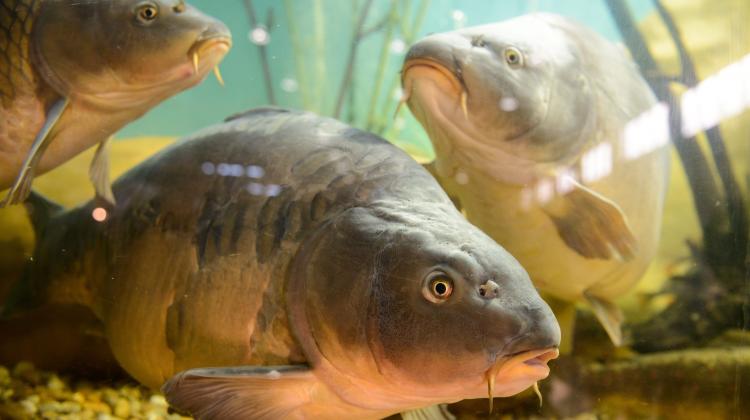Breeding carp more resistant to bacterial and parasitic diseases is the objective of research projects carried out at the Institute of Ichthyobiology and Aquaculture of the Polish Academy of Sciences in Gołysz (Silesia).
Researchers will also investigate the relationship between resistance and iron metabolism in fish.
“We hope that our research will contribute to breeding carp that will be more resistant to disease, thereby reducing losses and costs of vaccines and antibiotics incurred by farmers” – said project leader Dr. Patrycja Jurecka.
The first project – carp breeding using genetic resistance markers – is co-financed by the European Fisheries Fund. The program budget is PLN 2.7 million. 5-year study, completion of which is scheduled for next year, should help identify the fish genotypes associated with a higher natural resistance to common pathogens present in the aquatic environment: viruses, bacteria, parasites.
Scientists identify genes that determine a higher natural resistance, taking into account of the production characteristics, such as growth and demand for food. They test genetically diverse carp groups simultaneously in open environments (ponds and recirculated circuits) and in controlled environment.
“We hope that the result of our work will be development of a viable and feasible in Polish conditions breeding program of stocking material with excellent production properties, and more resistant to disease” – noted Dr. Jurecka.
The second project she coordinates, funded by the National Science Centre, concerns the relationship between carp resistance and how their bodies managed iron during infection. 1.5-year project will be completed this autumn, its budget is over PLN 100 thousand.
“Iron homeostasis is closely linked to the inflammatory reaction. Bacteria and parasites consume iron to multiply and grow. Accordingly, many organisms have developed defensive strategy consisting in protecting their iron resources during infection. The mechanisms of these two processes are not fully explained. Our project aims to identify and characterize the role of proteins involved in iron metabolism during bacterial and parasitic infections in carp” – explained Dr. Jurecka.
Research is carried out on young carp, weighing 50 to 100 g, aged 6 months to a year. After selecting individuals with specific genes and their propagation, progeny is subjected to acute testing, infected. The next step is testing the blood and organs of surviving fish, which proved to be the most resistant.
